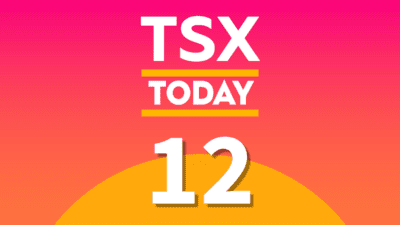It’s easy to become overwhelmed when beginning your investing journey. There’s no shortage of options on how to invest your money, and every financial expert seems to think their way is the best.
For anyone new to the stock market, my suggestion would be to invest in a broad market exchange-traded-fund (ETF). There’s a long list of ETFs for Canadians to choose from, so I’d go simple to start and pick up shares of a fund that tracks an entire index.
Owning an entire stock market index is a good choice for several reasons. One, it requires very little maintenance to manage, aside from adding to your position over time. Two, it’s not expensive. Compared to many mutual funds, most popular ETFs are significantly cheaper. And finally, ETF investors gain instant diversification. Rather than slowly building up a portfolio with individual stocks, an index ETF can provide investors with much-needed diversification the moment they begin investing.
The great thing about ETFs is that they’re not only for new investors. Even if all you plan on holding in your savings accounts are ETFs, you can do just fine. As long as you make a habit of contributing regularly, there’s a good chance for you to be living lavishly in your golden years from only owning ETFs.
Choosing the right ETF for you
Once you’ve determined that investing in ETFs is the way to go for your investing strategy, next comes deciding on the funds to invest in. There are a few things to consider when deciding what to buy. What is your risk tolerance? Are there specific sectors of the market you’d like to invest in? What about certain countries?
I’ve reviewed the three ETFs that I currently own. The reason why I own ETFs in addition to individual stocks is mainly for diversification. I prefer owning individual stocks in certain sectors that I’m familiar with and/or see lots of growth potential. As a result, there are lots of areas of the market that I don’t have exposure to from individual stock investing. That’s where ETFs come in. They provide my portfolio with the diversification I need to keep my portfolio balanced.
Three ETFs for an international presence
The U.S. has outperformed most countries in terms of growth over the past decade. That’s why Vanguard S&P 500 Index ETF (TSX:VFV) has grown into my largest holding between these three ETFs.
The fund aims to track the U.S.-based S&P 500 Index. Not only has it been the top performer of these three ETFs, it’s also the cheapest. The fund’s management expense ratio (MER) is only 0.08%. On top of that, the dividend is yielding just over 1% at today’s price.
The next two funds cover up the rest of the globe for my portfolio.
Vanguard FTSE Emerging Markets All Cap Index ETF (TSX:VEE), as the name suggests, focuses on emerging markets. China, India, and Brazil are the three leading countries with regards to weighting in the fund. It has a steeper 0.24% MER but is yielding close to 2% right now.
Vanguard FTSE Developed All Cap ex U.S. Index ETF (TSX:VDU) covers the remaining countries. Japan, the U.K., and Canada are weighted as the three largest countries in the fund. It has a similar MER and yield as the emerging market ETF at 0.21% and 2%, respectively.
Foolish bottom line
Whether you’re new to investing or have been at it for decades, these are three solid ETFs to own. The basket of funds provides your portfolio with all you need: consistent growth over the long term and diversification. In addition to that, you can’t beat the low prices of these top ETFs.







